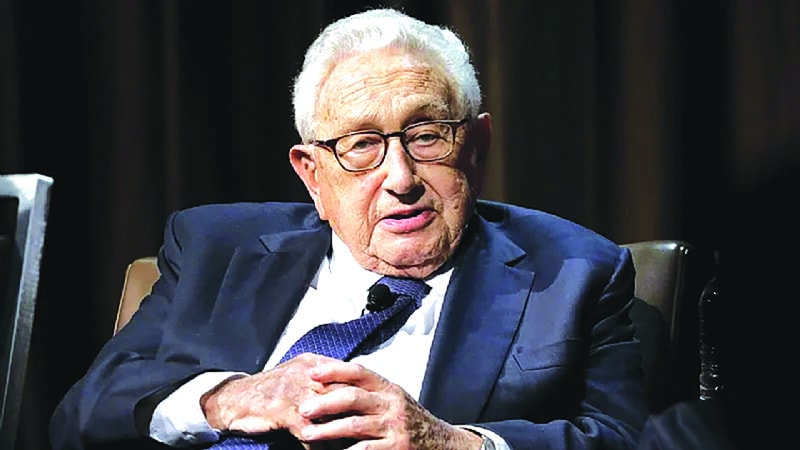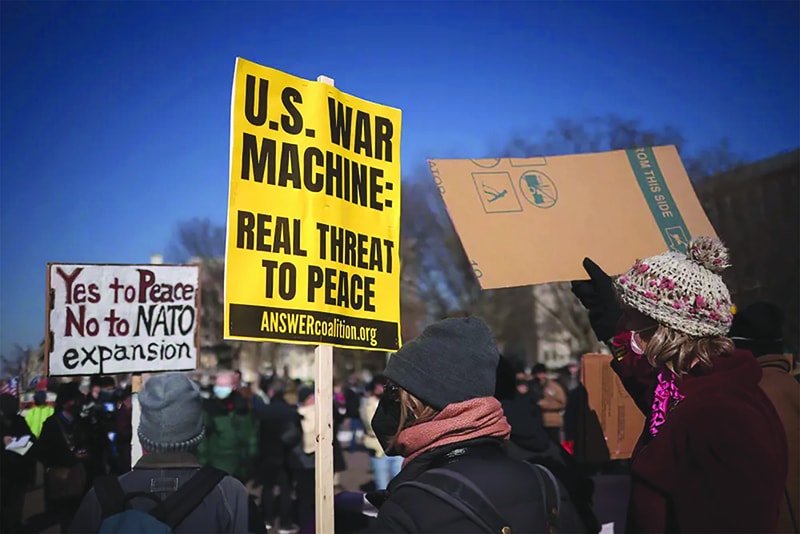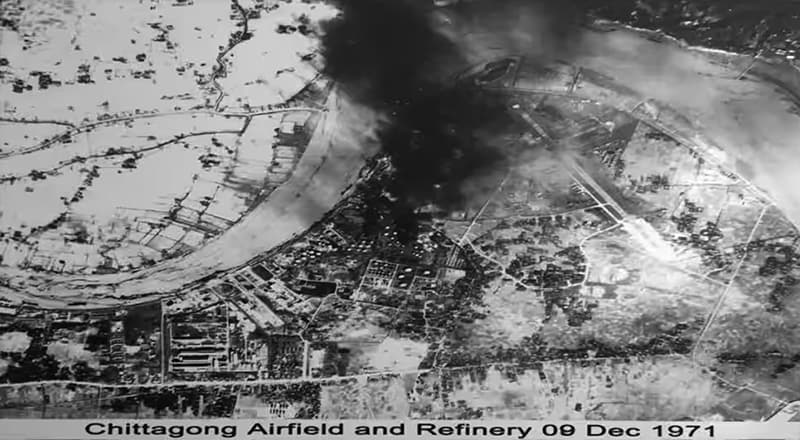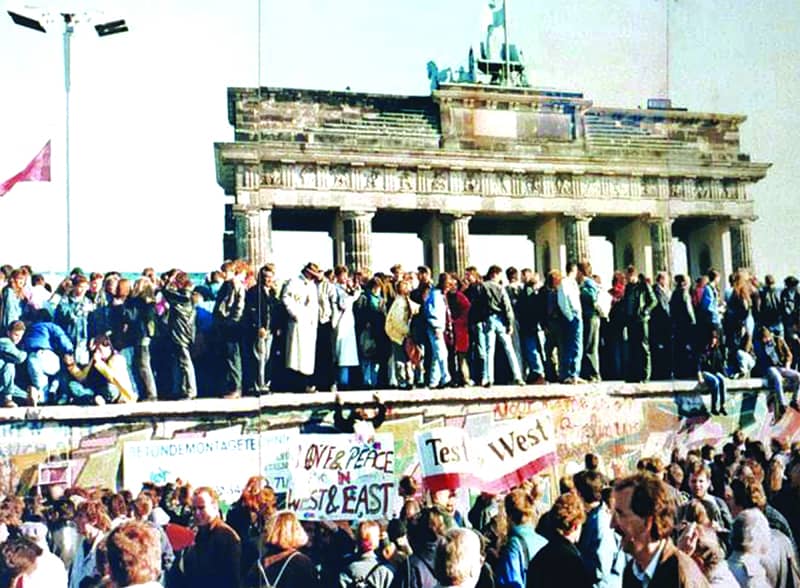THE US PRESIDENTS AND THE POST-COLD WAR SECURITY
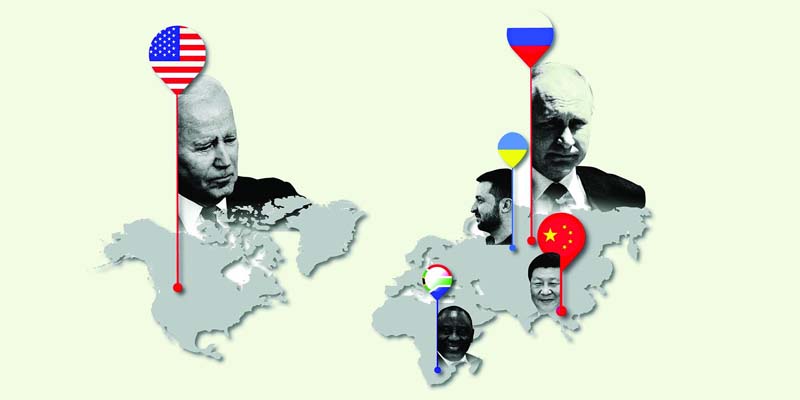
Air Vice Marshal Mahmud Hussain (Retd)
The post-Cold War era has been a most interesting phase in international politics in recent history. No other period has held the balance of power system in so much of ambivalence. The period has two distinct phases. The first phase started with the collapse of the former Soviet Union. It was undoubtedly uni-polar. The second phase, the present one is multi-polar, though many would term it as “unipolar-multipolar”. The distinction is subtle, and hardly enervates the paradigm of multi-polarity.
There is no denying the fact that the United States has been dominating global politics since the middle of the 20th Century. In fact, it was President Woodrow Wilson, in the aftermath of the 1st World War who set the profile of US superiority. His “fourteen point principles” was a precursor to managing global affairs. Great political phenomena need great powers to act together on behalf of the rest of mankind. But great nations also need great leaders with the vision of comprehending complex world politics on a grand scale. The leadership role of the US presidents in shaping the course of recent history has been a deciding factor for peace and conflict.
It is interesting the uni-polar world order which the US had created was a short-lived euphoria for the western world. Its replacement by a multi-polar world is a testing ground for assessing the role of successive US presidents in the post-Cold War era. Relatedly, the assumption of US leadership and international order imply the direction in which the world has moved since the fall of the Soviet Union in 1989.
George W. Bush Sr. (1989-1993)
The fall of the Soviet Union made the United States so visionary and confident of its strength in material capabilities that America became exceptional in promising a return of Wilsonian idealism to its foreign policy on a worldwide basis. America dreamt of a new world order. President George W. Bush Sr. (1989-1993), the first President in the post-Cold War era inaugurated the phase of uni-polar world order under his country’s profound colossus. He echoed his country’s mission in the following word.
“We have a vision of a new partnership of nations that transcends the Cold War. A partnership based on consultations, cooperation and, and collective action, especially through international and regional organizations. A partnership united by principle and the rule of law and supported by an equitable sharing of both cost and commitment. A partnership whose goals are to increase democracy, increase property and, increase the peace, and reduce arms.” (President George Bush Sr., “The UN: World Parliament of Peace,” address to the UN General Assembly, New York, October 1, 1990.)
America proved its exceptionalism in the first Gulf War. It was a classic example of combing the principles of idealism with the imperatives of realpolitik. Gulf War was both a political campaign and a military campaign par excellence at grand strategic scale. It modulated Clausewitzian proverb, that “global war to achieve global political objectives need a global leader.” It also successfully tested the Wilsonian doctrine of collective security, “a war of all against one”. In the previous two World Wars, the United States was an ally of the victors. It joined the wars rather late. But the Gulf War was an American War. The UN resolution passing the approval for the war was unanimous. 26 countries joined the war and Bangladesh was one of them with 6000 troops. It was a massive participation of the world body against a single enemy. The planning of the Gulf War was highly complex and difficult. Even if there was any country who opposed the war, its voice was, at best, muted. The war epitomized the US’s single-handed panache global leadership. It also heralded the advent of a uni-polar world order. To echo the truth of that moment: “America made the world order, and the world order made America”.
Bill Clinton (1993-2001)
Certainly, the US had an overwhelming military power, and it was able to accomplish tasks that others were unwilling for lack of political will and consensus. The impact of its actions was worldwide and left an indelible impression of greatness. It showed courage to transplant its own values and institutions across the world. Its mental power was enormous. When President Bill Clinton, the second US President (1993-2001) in the uni-polar moment, took power, he proclaimed his intention to enlarge democracy, and it was reminiscent of a global governance.
“In a new era of peril and opportunity, our overriding purpose must be to expand and strengthen the world’s community of market-based democracies. During the Cold War, we sought to contain a threat to survival of free institutions. Now we seek to enlarge the circle of nations that live under those free institutions, for our dream is of a day when the opinions and energies of every person in the world will be given full expression in a world of thriving democracies that cooperate with each other and live in peace.” (President Bill Clinton, “Confronting the Challenges of a Broader World,” address to the UN General Assembly, New York, September 27, 1993.)
Clinton was emphasizing the role of democracy, free-market economy and globalization in making the post-Cold War security environment resolute and sustainable. American hard power was conjoined with its soft power. Once again, the growth of worldwide networks of interdependence overarching the mantle of “globalization” offered means for laissez-faire economy. It was possible for the US to create an environment of shared interests through economic interdependence, and institutions while maintaining a posture of “American hegemon”. Its geo-political appeal enlarged NATO membership. It guaranteed security to its Asian allies, notably, Japan, South Korea, Taiwan and the ASEAN bloc. It showed to the world the utility of force to attain definitive political outcome for peace in Bosnian crisis that for long defied solution due to incompetent handling of European powers.
Externalities that once so constrained the United States in taking actions were removed but unhinged freedom of exercise could also be damaging to reputation.
George W. Bush Jr. (2001-2009)
President George W. Bush junior (2001-2009), the third US President in the uni-polar moment, avoided the path of reconciliation and seemed to favor the strategy of “go alone”. His famous coinage of the expression ‘either you are with us or with them’ eroded much confidence in moral high ground that the United States as a single superpower was supposed to enjoy from others. Instead of strengthening the political hierarchy for itself, the Bush Administration, much to its bewilderment, was de-constructing the moral side of political perspectives. “Either/Or’ version in international politics lent suspicion into the minds of others under conditions of uni-polar dictates. It meant that America made rules for strategic engagement, and it was morally obligated upon others to obey her. In the task of confronting the so-called “evil”, there was no choice but to condescend to the United States.
Despite all the braggadocio of US intransigence, there were challenges to uni-polar order emanating from a de-constructive language. What was for the United States a “war on terror” took on a different meaning as “freedom struggle” by others. US failure to resolve the Middle East crisis till today is a case in point. The United States could not obtain unanimous support to back its Middle East peace plan. Terrorism which President Bush called the product of Islamic fundamentalism was also a challenge to western imperialism. It was the beginning of challenging US intention, thereby attacking its unipolar moral aspirations. Take the French-American row over the US logic to wage the second Gulf War. Chirac’s multi-polar rhetoric in defending his opposition to the war became a concern of ambivalence among US policymakers, even inviting British Prime Minister Tony Blair to call Chirac’s vision of multi-polarity dangerous. Fareed Zakaria infers the beginning of the end of the US-dominated uni-polar world with the collapse of Iraq in 2003. The second Gulf War was a blundered strategy and has played a definitive role in the decline of US pre-eminence with the rise of Islamic terrorism. Iraq became a costly fiasco. Joseph E. Stiglitz makes an empirical assessment of the economic consequences of going alone in the war in his book, The Three Trillion Dollar War: The True Cost of the Iraq Conflict. Middle East, the center of gravity of world oil production transformed into a jihadist flashpoint when Zarqawi-led group called the Organization of Monotheism began operations in Iraq in May 2003. In October 2006, the Islamic State of Iraq (ISI) was formed. The Iraq War has turned into a global nightmare. By the time ISIS announced the establishment of the caliphate and renamed itself as “the Islamic State” in June 2014. The upshot to Iraq War had engulfed the whole of Middle East and may turn out to be America’s longest war.
Great convictions must be matched by great deeds carefully chosen with proper and in-depth strategic vision. A successful leader is one whose idealism is matched with the resources available for the application of realist choices. A demagogue is unable to comprehend the complexities of international politics by transcending nationalistic jingoism. Bush junior unlike his father who saw America’s role as befitting its strength and stature in the unique position of remaking a New World Order, lacked a clear perspective of international system. The way he prosecuted his Global War on Terror (GWOT) contained seeds of US’s decline from a position of moral superiority. This was damaging for a superpower that wanted to lead the global order. A simple analogy with his previous predecessor Bill Clinton will reveal how divergent he was in getting the world along with him. Bill Clinton saw in the world an immense potential for interdependence; he was a champion of globalization, where more integrated global community of shared responsibilities, shared benefits and shared values would overcome poverty, ignorance, disease and bad government.
Barack Obama (2009-2017)
By the time Barack Obama took office as the fourth President, challenges to the uni-polar world order started building up. Obama worked hard to maintain a balance between soft power and hard power. Obama withdrew the vast majority of U.S. soldiers in Iraq by late 2011, and when he left office, there were roughly 8,400 U.S. soldiers in Afghanistan. Obama reiterated a long-term NATO partnership with Russia. He continued to advocate for a negotiated two-state solution of Israeli-Palestine conflict and his administration abstained from vetoing the UN Security Council Resolution to end the Israeli settlement in Palestinian territory captured during the 1967 Six-Day Yom Kippur War. He made a major breakthrough in US-Cuba relations. Obama’s attitude differed radically from that of his predecessor, George W. Bush. Iran deal was an exemplar of multi-lateral agreement with other P5+1 powers (China, France, Russia, the United Kingdom, and the United States; plus Germany). Obama’s foreign policy during the Arab spring was based on respecting the aspirations of the local population against a dictator whereof the Egyptian President Hosni Mubarak had to resign at his insistence. The Obama administration announced to review U.S. military assistance to Saudi Arabia after its warplanes killed more than 140 people at a funeral in Yemen’s capital Sana. Obama stated his desire to close the detention camp in Guantanamo Bay urging that the camp’s extrajudicial methods were a violation of legal norms. There were 242 prisoners when he assumed office, and only 41 inmates remained at the time of his departure. The Obama administration launched a successful operation that killed Osama bin Laden, the leader of Al-Qaeda. Response to his killing across the world was positive. The US Libyan campaign culminated in the toppling of the Gaddafi regime, and in November 2015, Obama announced a plan to resettle at least 10,000 Syrian refugees in the United States.
But it was in Asia, the rise of China, in the eyes of American scholars and strategists that undermined the image of the United States as “the indispensable nation and the world’s sole superpower.” No wonder that Obama’s “geo-political pivot to Asia” was in response to the emergence of Chinese power in the Asia-Pacific. His Secretary of State, Hilary Clinton went so far as to declare that for the United States, “the future of politics will be decided in Asia, not Afghanistan or Iraq, and the United States will be right at the center of action”. Obama essentially wanted the United States to solidify its uni-polar influence where it was geo-strategically most needed. China’s continued territorial claims in the South China Sea and the East China Sea put Obama administration into closer relations with ASEAN (Association of South East Asian Nations). Its relations with Australia, the Philippines, Vietnam, Laos, Japan and South Korea got better. But the most important foreign policy attribute of Obama was to walk the Wilsonian path by enhancing the soft power attraction of the United States. Obama lifted many sanctions on Myanmar after America helped encourage openly contested elections there. But the most potentially substantive action by Obama was to design the Trans-Pacific Partnership (TPP) as the key pillar of the “Asian Pivot”. Started as a “geo-economic fraternity”, the partnership could also be used as a conduit for collective security in dealing with the rising China in its own sphere of influence. If President Bush junior was a realist par excellence willing to dominate the world with the insouciance of a lone superpower, Obama melded his version of realpolitik with the liberal doctrine of a great power’s manifest destiny.
Donald Trump (2017-2021)
President Donald Trump, the fifth US President in the post-Cold War era (2017- 2021) has damaged much of US global leadership image through reckless foreign policy. He had flouted every possible initiatives that his predecessors, both democrat and republican, took to manage the international affairs. He had underrated himself by being a populist, nationalist and protectionist. His doctrine of “America First” was a great shift that despised its traditional role of global leader after World War II. His ideas often seemed dangerous for world stability. He had no clue to the “soft power” influence of a great nation in rallying the support from the recalcitrant states. His coercive foreign policy with states that could be contained through a mix of proportionate “stick and carrot” strategy was producing irrelevant results. He saw everyone as plotting against the United States. The meaning of the world through democracy, globalization and free market economy, that the United States wanted to maintain throughout the period failed to enter his policy directives, and gave a big kink to the US fostered liberal order. His realist paradigm lacked the bigger picture of the world.
His “make America great again” slogan sounds hollow in respect of the burden of responsibility owed by a great power. No alliance group has been more flabbergasted than Europe to find that the US administration was, no longer, interested in its security as part of America’s strategic objective. He withdrew from the Trans-Pacific Partnership (TPP), thereby giving away space to China in Asia. Both North American Free Trade Agreement (NAFTA) and European Union, he saw as tools of Canada and Germany to beat the United States on trade. He picked up trade wars with China that could spell far-reaching deleterious effects for global economy. He had very little respect for multi-lateral rules and institutions that was once the hallmark of US leadership. By rejecting the global agenda on environment, he made Europe into a global leader on energy and the environment. In the Middle East, careless handling of the crisis and mostly a non-interventionist attitude is seeing the emergence of Russia as a strong opponent to US influence. Shifting of US embassy to Jerusalem was a move that instead of thawing Israel-Palestine enmity has further worsened the peace process. His behavior with Iran was eccentric and unwarranted of foreign policy appropriate to a great power. Only in case of North Korea, he has shown some sanity in behavior by shunning previously chosen path of destruction but for that more than his own interest, South Korea and China would have to be credited as these countries might, no longer, bear coming back to the tragic reminiscences of Korean and Vietnam wars.
Joe Biden (2021- )
The sixth US President in the post-Cold War era, Joe Biden (2021-) received the first severe shock when Vladimir Putin declared that his attack on Ukraine was not just to teach a lesson to Russia’s neighbor but also to challenge the US-led world order. At the time of this writing, Ukraine is being backed up militarily by NATO under the leadership of the United States, but it has not been of much help to the US cause of a stable world order, and no one will bear in terms of rising energy prices, and damaging economies. The war has also brought China closer to Russia engendering a challenge to US hegemony. Both Putin and Xi Jinping have attacked US-sponsored post-Cold war order by adopting strategies that the US may find lot harder to deal with.
(Note: This is a broad classification of the US Presidents. By “convergence” I mean the great power’s ability to pull maximum support in its favored decision, and “divergence” implies when the great power acts alone. George H.W.Bush’s ability to get unanimous UN approval in the First Gulf War is an example of “convergence”, while the junior Bush’s decision to “go-alone” in the Second Iraq War in 2003 is of “divergence”. Barrack Obama’s actions to engage with others such as Iran, Iraq and Asia (TPP) are very good examples of convergence, while Trump’s insolence to the opposite is a signal to divergence.)
The leadership characteristics of a great power have strong influence upon the changes of international politics. It is difficult for world politics to operate in a vacuum. The post-Cold War security depends much on the leadership style of the United States but it should also warn itself of the hegemonic inclinations of a super-power. If the future growth of world’s material capabilities depends upon the Asia Pacific, it is imperative for the United States to engage with Asian powers in a partnership mood. Otherwise, the world will be more insecure, and in the scenario of great power conflicts, the worst sufferers will be the potentially developing but materially weak states.
Air Vice Marshal Mahmud Hussain is a retired air force officer. He served as High Commissioner of Bangladesh to Brunei Darussalam from November 2016 to September 2020. He served as the Chairman, Civil Aviation Authority of Bangladesh (CAAB). Presently, he is working as the Distinguished Expert at Bangabandhu Sheikh Mujibur Rahman Aviation and Aerospace University (BSMRAAU).








